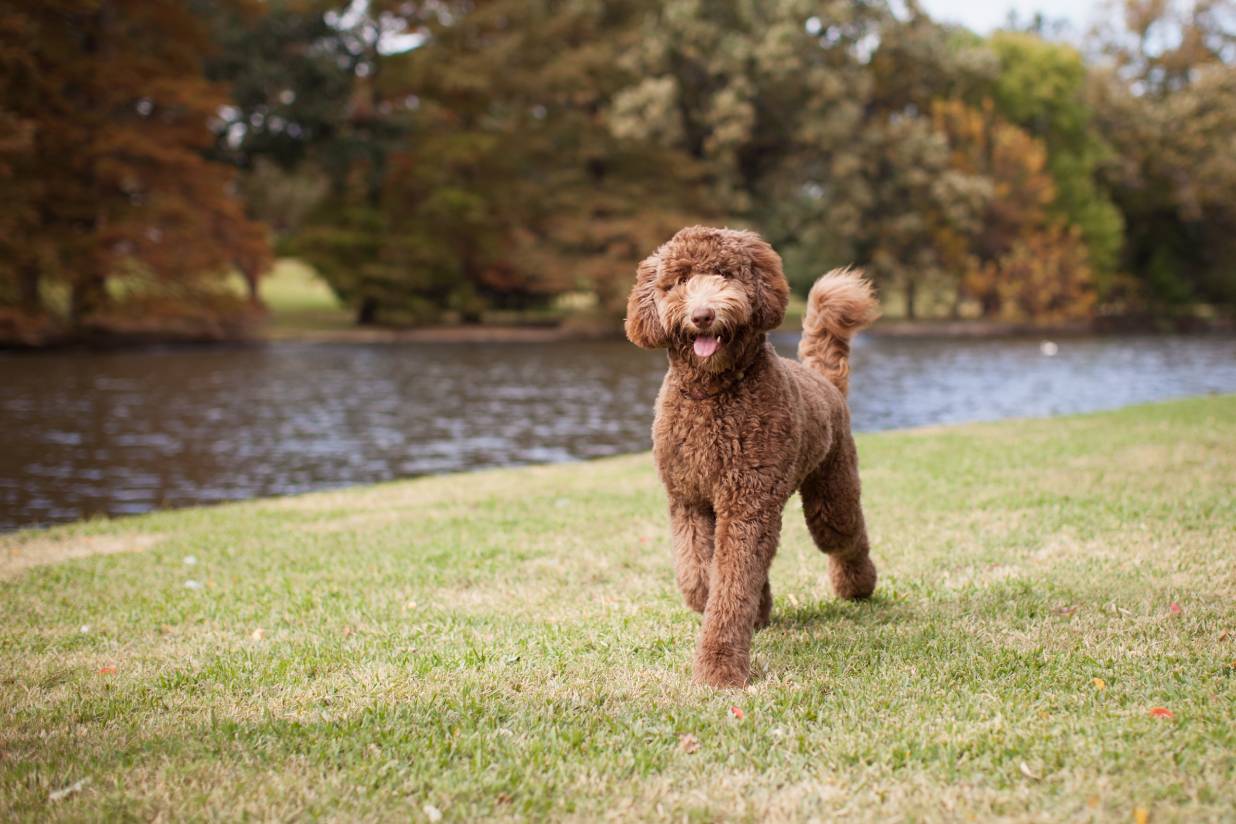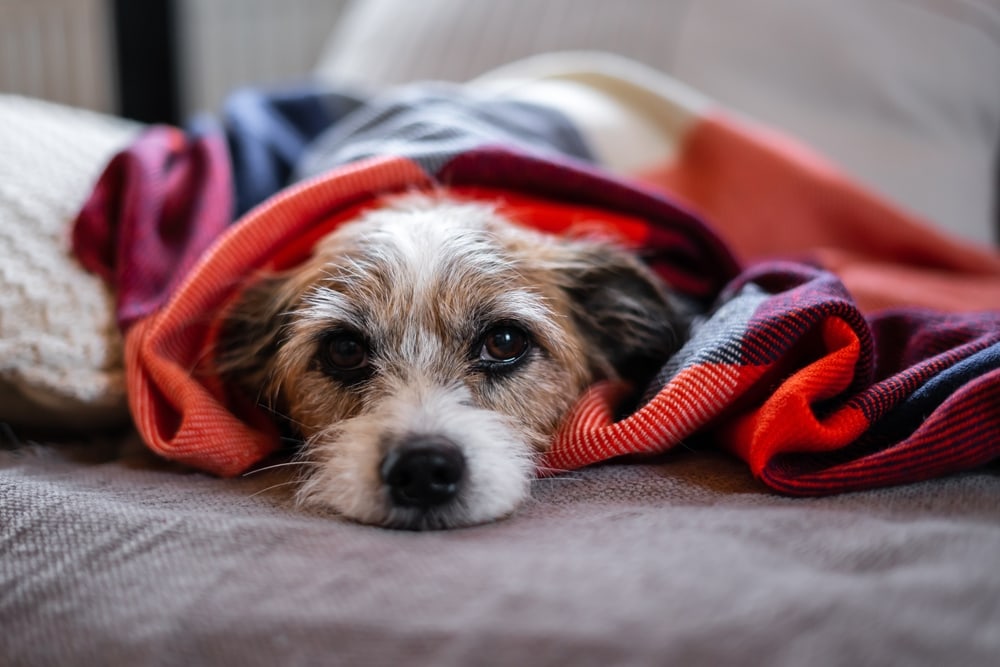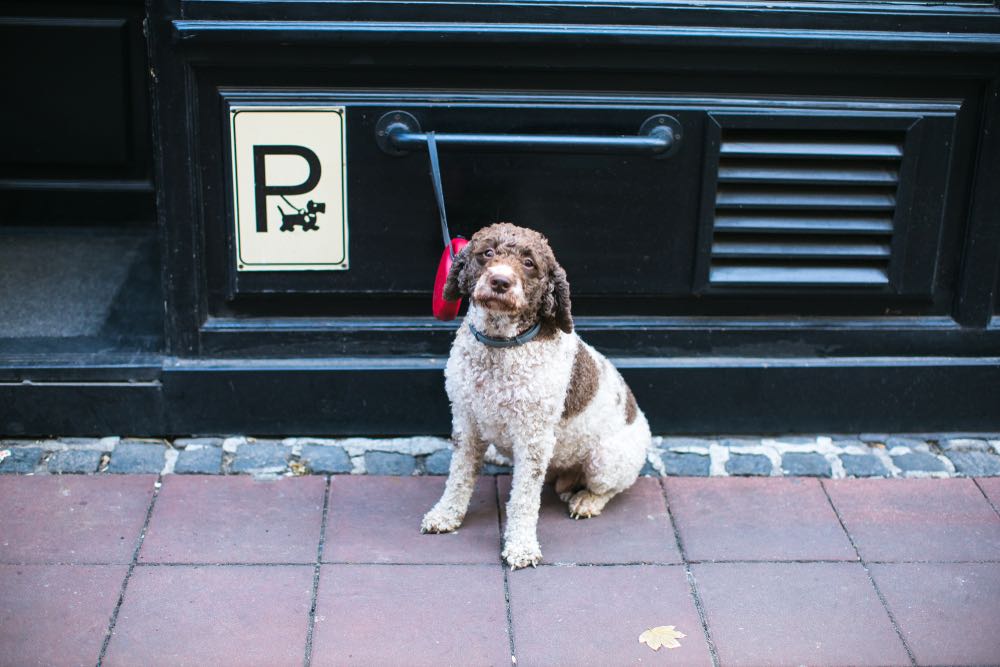Are Goldendoodles Hypoallergenic? Vet Approved Facts & Tips
Updated on

We all know and love Goldendoodles because of their unique personality and gorgeous appearance. These pups are known for their silky-smooth coats which rarely sheds, and they’re ideal for small apartments or families with toddlers. The good news is that Goldendoodles are known to be hypoallergenic, and they don’t shed much at all, reducing the risk of allergies in their owners.
Here we will discuss the traits of the lovely Goldendoodle and, more specifically, whether they are truly hypoallergenic or not and how to address any potential problems.
Goldendoodle Traits
Goldendoodles are very unique-looking dogs that have gained popularity in the last few years. Goldendoodles are a mixed breed between Golden Retrievers and Poodles, and they inherit their best traits from both parent breeds. They have a wavy or curly coat that can be found in many different colors, but the most common ones are golden and cream. But to keep their fur looking nice and shiny, they require regular brushing.
Regarding their personality traits, they are one of the friendliest companions to have. They quickly get along with every family member, and if you have other pets in your household, it shouldn’t be any problem for Goldendoodles. They get along with anyone and form strong bonds with their owners. But these traits don’t mean Goldendoodles don’t need training because, like every dog, proper training and socialization from a young age are crucial for avoiding unwanted behavior. Like most dogs, they sometimes display unwanted behavior, but proper activity levels and play should be enough to solve this.
They are often used as service, therapy, and sniffer dogs. They are highly intelligent and have a great sense of smell, which makes them great for these activities.

What Is a Hypoallergenic Dog?
Hypoallergenic means that something is less likely to cause allergic reactions. Some dog breeds are considered hypoallergenic in the sense that they produce less protein that is responsible for causing allergic reactions. This specific protein is usually found in the dog’s saliva and skin, transferring it to other body parts when licking their fur. So, when the person comes in direct contact with that protein, it results in an allergic reaction if the person is allergic. Dogs that don’t cause allergic reactions, unfortunately, don’t exist, but dogs with less of this protein or shed less are often considered hypoallergenic. Dogs that shed less are typically also considered hypoallergenic. This category includes breeds like Bichon Frises, Poodles, and Cocker Spaniels.
Are Goldendoodles Hypoallergenic?
Considering that the Goldendoodles are descendants of the Poodle, they are also considered to be hypoallergenic. But again, a fully hypoallergenic dog doesn’t exist, so allergies caused by Goldendoodles can actually occur in some people. It is also important to note that sometimes Goldendoodles inherit traits from Golden Retrievers and will shed more, and you must take proper care of the dog’s fur and brush it regularly. Hypoallergenic factors also depend on the size of the Goldendoodle—smaller dogs shed less fur overall simply due to being smaller and may be less likely to cause an allergic reaction.

How to Reduce Potential Allergies
- Regular brushing is a key method of getting rid of loose hairs, which directly decreases the chances of you having an allergic reaction. Not only that, but regular brushing will also help your dog’s coat stay healthy and look fresh and shiny. Goldendoodles do shed, but less than many other breeds.
- A similar thing applies to bathing; it helps reduce shedding and thus allergic symptoms. However, be careful not to bathe your pooch too much, as this can cause skin and coat issues.
- It is also essential that you try avoiding letting your dog sleep on your bed if you have any allergies. There is a possibility that they will spread the allergens to the places that you spend the most time in and, with that, directly increase the chances of an allergic reaction. Try and keep your bedroom a “dog-free” zone.
- Vacuuming regularly will help reduce the amount of shed hair around the house. Additionally, you can also try using an air purifier which will reduce allergens in your home.
Final Thoughts
Goldendoodles are among the most loving and playful dogs out there, so they can be a perfect fit for almost anybody. But even though they are less likely to cause allergic reactions in humans, there is no guarantee with any dog that it will happen.
Keeping your Goldendoodle’s coat clean and brushed and taking good care of your house will reduce the chances of allergic reactions. That means you’ll be able to spend more time cuddled up with your furry friend!
Featured Image Credit: Matthew Yoder, Shutterstock













